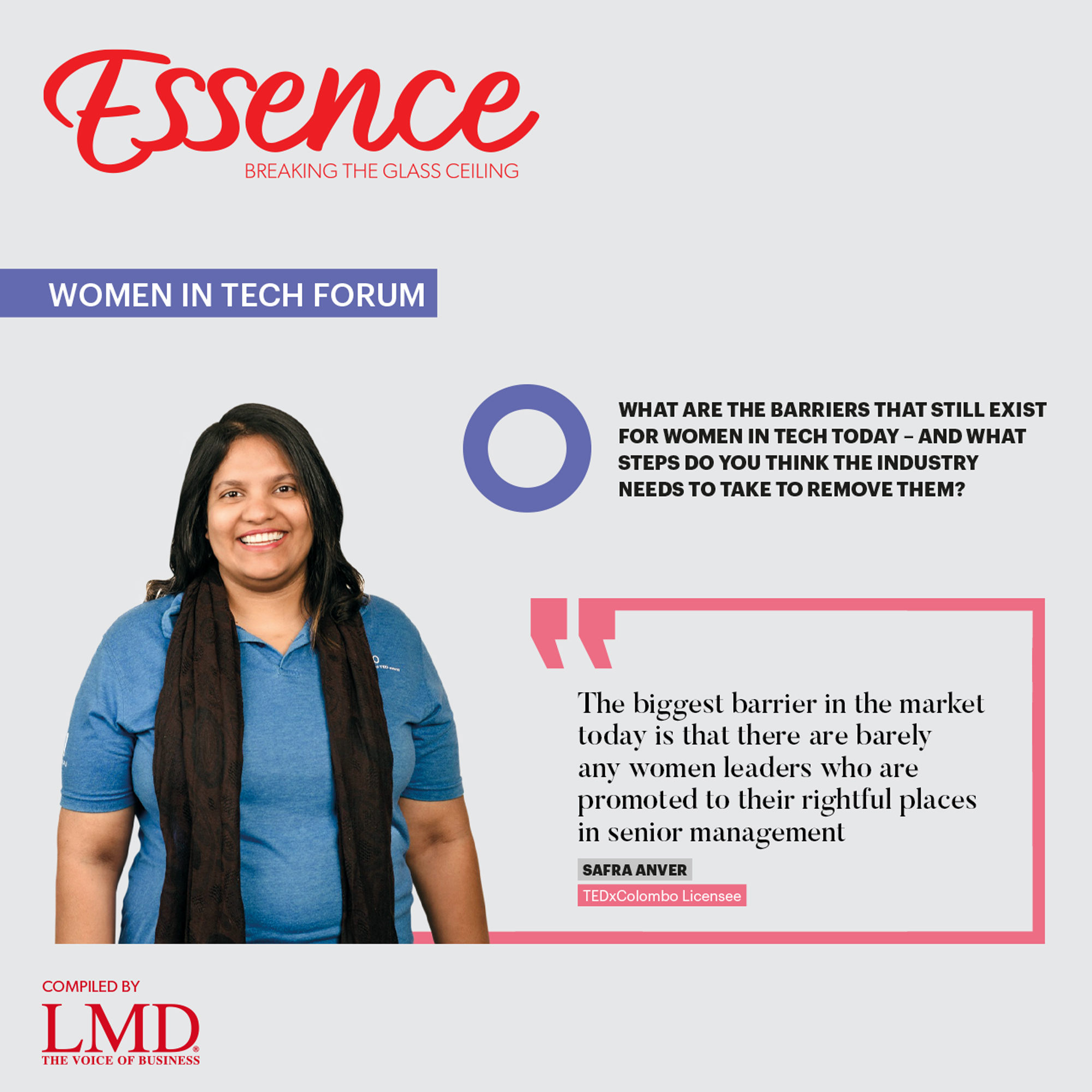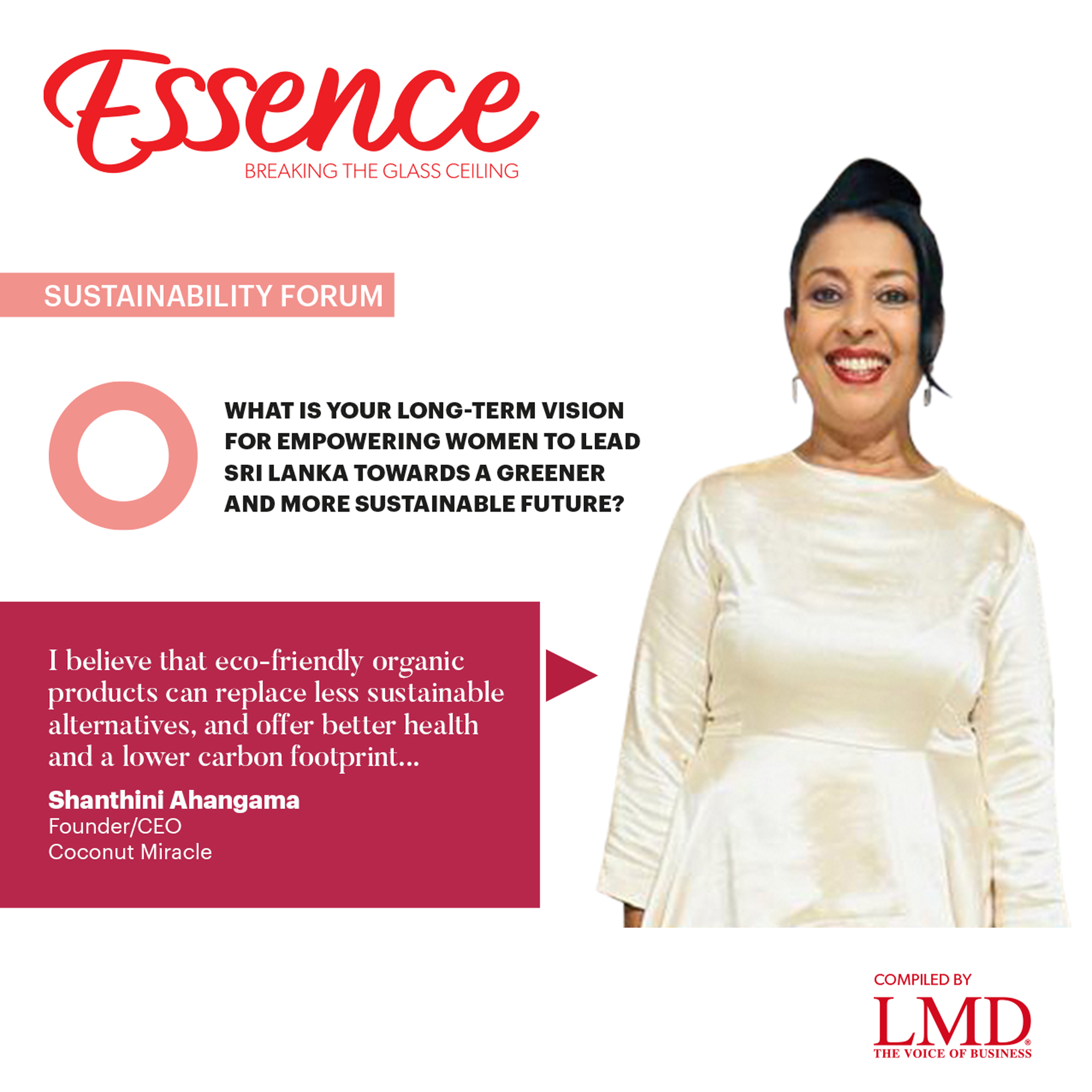SEYLAN BANK
 Q: What is your assessment of the gender balance in the banking sector?
Q: What is your assessment of the gender balance in the banking sector?
A: Banking has always enjoyed relatively good female representation compared to other sectors. We have had prominent women such as Rohini Nanayakkara rise to the pinnacle of the financial services industry.
Even today, there is representation in both private and public banking segments. However, it has to remain progressive, and encourage more women to strive for senior management and board roles.
Seylan Bank believes in equal opportunities for all, and gender equality is a critical factor as we strive to achieve a composition of males and females that better represents the population’s demographics.
I believe banking is seen as a more traditional field that is deemed to be ‘safe’ for women but we need to see them break new ground in management roles. Harnessing the inherent diversity of thoughts, views and experiences across the bank’s employees is critical to business success and fundamental to our growth in the sector.
Seylan Bank is committed to promoting equality in the workplace, and fostering an inclusive and flexible culture – one where everyone can realise their full potential and make positive contributions. This in turn helps us provide better support to our broad client base across the country.
Q: How do you view the business climate for women entrepreneurs?
A: It is changing; if you look at the Sri Lanka Export Development Board’s (EDB) or Asian Development Bank’s (ADB) initiatives alongside others, there is a concerted effort to bring women entrepreneurs to the fore – especially by way of SMEs.
Women – especially those lacking access to knowledge such as marketing, finance and so on – are relatively less represented in the SME and export sectors.
This is being addressed. And there is no doubt that a more holistic approach must be adopted to improve the gender balance in senior positions.
Q: Do you believe women are being supported to maximise their potential?
A: There is more awareness about this now and therefore, greater encouragement. Some obstacles are limited access to finance, low business capacity, inadequate policy and regulatory frameworks, and a lack of data and evidence on women entrepreneurs to implement policies and practices. These areas need to be addressed.
Given the social strata, the paradigm shift must begin from the core – viz. the family. A girl child should be empowered first by her parents and then her husband to pursue her dreams.
I believe that women should choose careers they’re passionate about rather than only safe choices, as they will strive to surmount the odds and reach the top.
Companies should have specific policies to retain female employees with options such as part-time jobs, working from home (WFH) and daycare centres going a long way in encouraging them not to step back due to family responsibilities.
 Q: Is mentorship critical?
Q: Is mentorship critical?
A: Mentoring is important irrespective of gender. It’s crucial for anyone’s development be it career wise or in life.
From the perspective of my career, it is equally important to have the support of peers and colleagues, as the ‘rub off’ effect of each one’s speciality and knowledge in an informal setting facilitates a more well-rounded experience. Mentoring also helps boost confidence and self-esteem, clearing the path to realising one’s potential. Women must learn to step up and claim their due recognition and be assertive.
Q: How can corporates address the loss of women in mid-career?
A: The situation has improved largely due to economic reasons but we see more women sacrificing their careers for family.
Businesses have introduced facilities such as daycare centres to retain the female workforce. As the pandemic has revealed, WFH can address this loss and help nurture a healthier environment, improving productivity for both companies and individuals.
The new WFH trend could be a game changer for female employees and encourage greater participation in the workforce. I hope companies will engender this as part of their policies even in the future.





